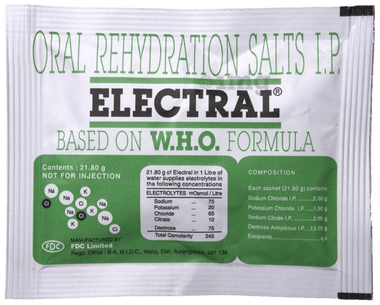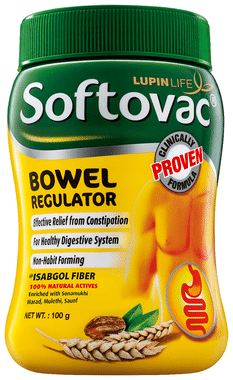Polytose Injection
Prescription Required
Product introduction
Polytose Injection is an antibiotic that fights bacteria. It is used to treat severe bacterial infections of the body. It works by killing and stopping the growth of bacteria that cause these problems. It is commonly used to treat critically ill patients admitted to the hospital.
Polytose Injection is given under the supervision of a healthcare professional. You should get the injections at the same time each day to get the most benefit and you should keep on taking this medicine for as long as you are prescribed it, even if your symptoms quickly improve. If you stop taking it too early the infection may return or worsen.
Some people may develop side effects like anaphylactic reaction, kidney damage, neurotoxicity, fever, or pain, redness, and swelling at the site of injection. These side effects are usually temporary and go away during treatment as your body adjusts to the medicine. Consult your doctor if these side effects bother you or will not go away.
Before starting treatment with this medicine, you should tell your doctor if you are allergic to any antibiotic or have any liver or kidney problems. Pregnant women should consult their doctor before using it. Your doctor may get regular blood tests done to monitor kidney function.
Polytose Injection is given under the supervision of a healthcare professional. You should get the injections at the same time each day to get the most benefit and you should keep on taking this medicine for as long as you are prescribed it, even if your symptoms quickly improve. If you stop taking it too early the infection may return or worsen.
Some people may develop side effects like anaphylactic reaction, kidney damage, neurotoxicity, fever, or pain, redness, and swelling at the site of injection. These side effects are usually temporary and go away during treatment as your body adjusts to the medicine. Consult your doctor if these side effects bother you or will not go away.
Before starting treatment with this medicine, you should tell your doctor if you are allergic to any antibiotic or have any liver or kidney problems. Pregnant women should consult their doctor before using it. Your doctor may get regular blood tests done to monitor kidney function.
Uses of Polytose Injection
- Treatment of Severe bacterial infections
Benefits of Polytose Injection
In Treatment of Severe bacterial infections
Polytose Injection is an antibiotic that works by killing bacteria which can cause serious infections. It is a versatile medicine used to treat many different types of bacterial infections. This medicine is usually given as an injection by a doctor or nurse and should not be self-administered at home.
This medicine usually makes you feel better very quickly but you should continue taking it as prescribed even when you feel better to make sure that all bacteria are killed and do not become resistant.
This medicine usually makes you feel better very quickly but you should continue taking it as prescribed even when you feel better to make sure that all bacteria are killed and do not become resistant.
Side effects of Polytose Injection
Most side effects do not require any medical attention and disappear as your body adjusts to the medicine. Consult your doctor if they persist or if you’re worried about them
Common side effects of Polytose
- Anaphylactic reaction
- Fever
- Kidney damage
- Neurotoxicity
- Injection site reactions (pain, swelling, redness)
How to use Polytose Injection
Your doctor or nurse will give you this medicine. Kindly do not self administer.
How Polytose Injection works
Polytose Injection is an antibiotic. It kills bacteria by destroying the bacterial cell membrane.
Safety advice
Alcohol
SAFE
Consuming alcohol with Polytose Injection does not cause any harmful side effects.
Pregnancy
CONSULT YOUR DOCTOR
Polytose Injection may be unsafe to use during pregnancy. Although there are limited studies in humans, animal studies have shown harmful effects on the developing baby. Your doctor will weigh the benefits and any potential risks before prescribing it to you. Please consult your doctor.
Breast feeding
SAFE IF PRESCRIBED
Polytose Injection is probably safe to use during breastfeeding. Limited human data suggests that the drug does not represent any significant risk to the baby.
Driving
UNSAFE
Polytose Injection may cause blurring of your vision for a short time just after its use. Do not drive until your vision is clear.
Kidney
CONSULT YOUR DOCTOR
There is limited information available on the use of Polytose Injection in patients with kidney disease. Please consult your doctor.
Liver
CONSULT YOUR DOCTOR
There is limited information available on the use of Polytose Injection in patients with liver disease. Please consult your doctor.
All substitutes
For informational purposes only. Consult a doctor before taking any medicines.
Polytose Injection
₹2256/Injection
Polyzan Injection
Suzan Pharma
₹3649/injection
52% costlier
Hipoly-B Injection
Intas Pharmaceuticals Ltd
₹700/injection
71% cheaper
Gerpoly-B Injection
Zydus Cadila
₹3085.5/injection
29% costlier
SU-Pol Injection
Suzan Pharma
₹1299/injection
46% cheaper
Polyiv 500000units Injection
Samarth Life Sciences Pvt Ltd
₹2200/injection
8% cheaper
Quick tips
- Polytose Injection treats serious bacterial infections that have not responded to treatment with other antibiotics.
- It is given by injection or drip (infusion) into a vein usually over 30-60 minutes.
- Finish the prescribed course, even if you start to feel better. Stopping it early may make the infection come back and harder to treat.
- Diarrhea may occur as a side effect. Inform your doctor if it doesn't stop or if you find blood in your stools.
- Your doctor may get regular blood tests done to monitor the level of the medicine in your blood.
- Polytose Injection treats serious bacterial infections that have not responded to treatment with other antibiotics.
- It is given by injection or drip (infusion) into a vein usually over 30-60 minutes.
- Finish the prescribed course, even if you start to feel better. Stopping it early may make the infection come back and harder to treat.
- Your doctor may get regular blood tests done to monitor the level of the medicine in your blood.
Fact Box
Chemical Class
Polymyxins
Habit Forming
No
Therapeutic Class
OPHTHAL OTOLOGICALS
Action Class
Cell membrane active agent
Interaction with drugs
Taking Polytose with any of the following medicines can modify the effect of either of them and cause some undesirable side effects
If concurrent use is essential, your doctor may closely monitor your kidney's functioning and overall treatment.
Concurrent use may cause kidney damage.
If concurrent use is essential, your doctor may closely monitor your kidney's functioning and overall treatment.
Concurrent use may cause kidney damage.
If concurrent use is essential, your doctor may monitor your blood pressure frequently.
Concurrent use may increase the risk of kidney damage.
Talk to your doctor if you notice any unusual symptoms. Your doctor may adjust the dose if required. Polymyxin B may increase the effect of Atracurium.
Concurrent use may slow down
Patient concerns
FAQs
What is Polytose Injection? What is it used for?
Polytose Injection is an antibiotic that fights bacteria. It is used to treat severe infections of the skin, soft tissues, heart and blood. It is commonly used to treat critically ill patients who are hospitalized.
How is Polytose Injection administered?
Polytose Injection should be administered under the supervision of a trained healthcare professional or a doctor only and should not be self-administered. The dose will depend on the condition you are being treated for and will be decided by your doctor. Follow your doctor’s instructions carefully to get maximum benefit from Polytose Injection.
Is Polytose Injection safe?
Polytose Injection is safe if used in the dose and duration advised by your doctor. Take it exactly as directed and do not skip any dose. Follow your doctor's instructions carefully and let your doctor know if any of the side effects bother you.
What are the side effects of Polytose Injection?
Some common side effects associated with Polytose Injection include reduced urination, breathing problems, numbness, vertigo, blurred vision, facial redness, slurred speech and pain. However, these side effects are usually not bothersome and resolve in some time. If they persist for a longer duration or worry you, consult your doctor.
Disclaimer:
Tata 1mg's sole intention is to ensure that its consumers get information that is expert-reviewed, accurate and trustworthy. However, the information contained herein should NOT be used as a substitute for the advice of a qualified physician. The information provided here is for informational purposes only. This may not cover everything about particular health conditions, lab tests, medicines, all possible side effects, drug interactions, warnings, alerts, etc. Please consult your doctor and discuss all your queries related to any disease or medicine. We intend to support, not replace, the doctor-patient relationship.References
- MacDougall C, Chambers HF. Protein Synthesis Inhibitors and Miscellaneous Antibacterial Agents. In: Brunton LL, Chabner BA, Knollmann BC, editors. Goodman & Gilman’s: The Pharmacological Basis of Therapeutics. 12th ed. New York, New York: McGraw-Hill Medical; 2011. pp. 1538-39.
- Chambers HF, Deck DH. Miscellaneous Antimicrobial Agents; Disingectants, Antiseptics, & Sterilants. In: Katzung BG, Masters SB, Trevor AJ, editors. Basic and Clinical Pharmacology. 11th ed. New Delhi, India: Tata McGraw Hill Education Private Limited; 2009. p. 878.
- Briggs GG, Freeman RK, editors. A Reference Guide to Fetal and Neonatal Risk: Drugs in Pregnancy and Lactation. 10th ed. Philadelphia, PA: Wolters Kluwer Health; 2015. p. 1133.
Marketer details
Name: Cratus Life Care
Address: 7, Niraj Ind. Estate, Off Mahakali Caves Road, Andheri (E), Mumbai, Maharashtra 400093
Country of origin: India
Lab tests offered by us

Related/Popular tests
₹2256
Inclusive of all taxes
MRP₹2400 6% OFF
1.0 Injection in 1 vial
SOLD OUT
Question 1
What are you using this medicine for?
Severe bacterial infections
Others









